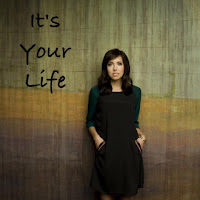In a recent
Sunday Night story that documented Reporter Mike Willesee on a 10 week Paleo challenge, the gentleman representing the Dietician's Association of Australia (DAA) said that Paleo was too restrictive.
"I have a big beef with Paleo because you don't need to go that far."
Based on my personal experience, I actually think that the perceived public health message doesn't go far enough. What I mean is that I thought that my diet was pretty good, but it wasn't until I took a restrictive approach that change began to happen.
When I embarked on the eating plan that kick-started my journey I had never done any kind of diet before. I was getting a bit desperate to find a way to deal with progressively worsening menstrual migraines and, as I had a gut feeling that diet could have something to do with it, I was determined to follow the program closely to give myself the best chance of success. It was quite a restrictive program and it actually took me a few weeks to prepare for it. I wanted to do it right. I didn't want to be left wondering.
It was challenging and took a considerable effort on my part because I was also cooking "normal" meals for the rest of the family while I did it. The point I'm getting to here is that it did work - I experienced a noticeable improvement just in the first week - and looking back, that process of restrictive eating was very much a retraining process that I needed to do. Without those guidelines I might never have discovered that I could free myself from those migraines!
I now understand that the changes I made reset, and continues to support, my body's natural detoxification processes, because I've added in a lot more nutrients and improved my body's ability to use those nutrients by removing the things that were inhibiting that process.
In my opinion we are being done a disservice by a public health message that uses words and phrases like "sometimes foods", "eat less", "limit" and "cut back on". The advice falls short of just saying "No".
If we are honest with ourselves, if you think that you only need to "eat less" refined sugar and flour and that its OK to eat sugary sweets and fast food "sometimes" you are probably eating these more than you realise.
If you look closely at the DAA's dietary advice it does advise to restrict these things quite considerably, but in my experience, the public perception seems to be an "everything in moderation" attitude and I think that this is what is getting us into trouble. At the end of the 10 week challenge Mike Willesee admitted, "For the first time in my life, I've stopped to think about the food I'm eating."
I found that when I completely cut refined sugar and other processed foods from my diet I began to develop more of a palate for less sweet foods and began to appreciate more, and even crave, the flavours of whole fresh foods.
The diet I now choose to eat is not exactly Paleo, but it is similar. I never set out to eat Paleo and didn't even know what that was when I started my journey. I have arrived here on a different path and approach it from quite a different perspective. Essentially I'm about removing all processed foods and just eating the wonderful nutrient-rich natural foods that God gave us to nourish our amazing bodies. In other words, providing my body with the raw materials it needs to function the way it was designed to.
Yes, it takes more effort but I have formed new habits and adjusted to the lifestyle. When you see results it's not so hard. I really am enjoying the way I eat. I don't feel deprived. I'm my own experiment and I'm in a better place. I don't regret it one bit.
What is Paleo?
The Paleo Diet is based on what our "Paleolithic ancestors" apparently did or did not eat. At its beginnings I understand that the Paleo Diet had quite a heavy emphasis on meat, but the Paleo Way diet trialled by Mike Willesee is described by Chef Pete Evans as moderate amounts of protein from organically raised meats/fish on a natural diet. Lots of fibrous non-starchy vegetables, and some fermented vegetables, good quality fats from natural sources like nuts & seeds, avocado, coconut oil, olive oil, and a small amount of seasonal fruit. No dairy, no legumes, no grains, no processed foods, no sugar, and no alcohol.
Sources/Links:
Sunday Night Stories:
http://www.news.com.au/entertainment/tv/health-crisis-turns-mike-willesee-into-latest-celebrity-lab-rat-for-paleo-pete-evans/story-e6frfmyi-1227484176367
Australian Dietary Guidlines 2013:
http://www.nhmrc.gov.au/_files_nhmrc/publications/attachments/n55a_australian_dietary_guidelines_summary_131014.pdf
DAA advice on takeaway:
http://daa.asn.au/?page_id=798
Australian Guide to Healthy Eating
https://www.eatforhealth.gov.au/guidelines/australian-guide-healthy-eating
Discretionary Food and Drink Choices:
https://www.eatforhealth.gov.au/food-essentials/discretionary-food-and-drink-choices
Better Health Channel - Foods to Have Sometimes:
https://www.eatforhealth.gov.au/food-essentials/discretionary-food-and-drink-choices
~ take every opportunity to put the good stuff in ~
This blog is about me, what I'm doing, what's working for me, and what's not. It includes my experiences and opinions. It is for general information only and is in no way intended to replace the advice of a health care professional.



